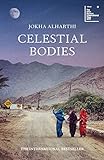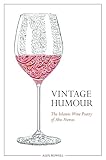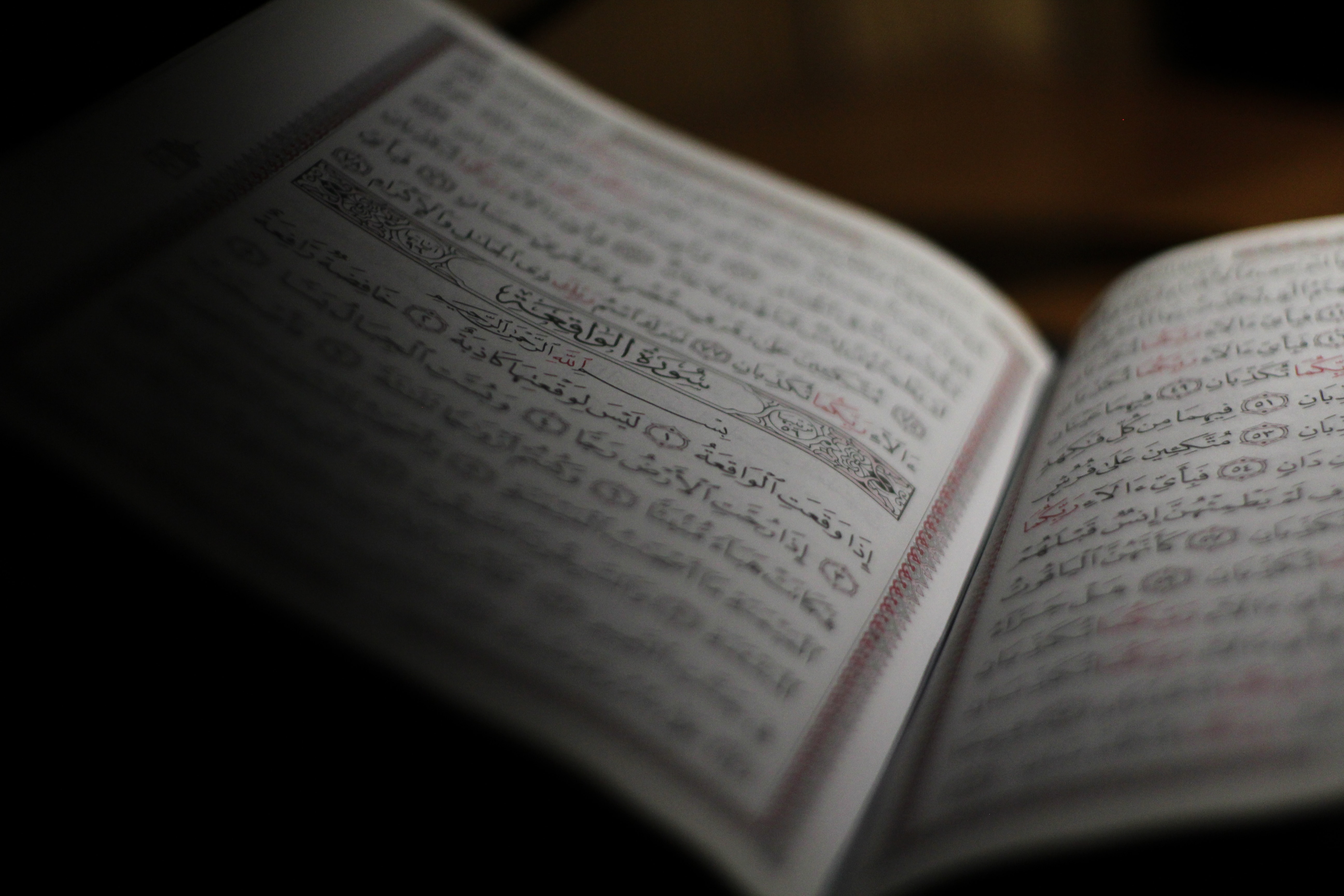It’s a good time to be an Arab writer. December 18 marks the seventh annual UNESCO World Arabic Language Day, just one of many honors accorded by western elites on their Arab peers. Another came earlier this year when the International Booker—not to be confused with the “Arabic Booker,” a.k.a. the International Prize for Arabic Fiction; as James English observes in The Economy of Prestige, the nature of cultural prizes is to endlessly beget more prizes—had its first Arabic winner in Celestial Bodies, by Omani author Jokha Alharthi and translated by Marilyn Booth. All of this commotion means that publishers are now seeing Arabic titles spike in supply and demand. With conspicuous gestures by enterprising Gulf monarchs, there is now more financial and psychical support than ever for translating Arabic literature into English.

 Yet such happy developments tend to bless the province of modern works alone. However well-intentioned their goals, the various prizes, publishers, and pecuniary goods—in short, the institutional boons to translation—are losing sight of Arabic’s great riches: the centuries-old tradition of classical literature, as well as the battle-weary corps of translators bringing it into English, often from beyond the fortified ramparts of university tenure.
Yet such happy developments tend to bless the province of modern works alone. However well-intentioned their goals, the various prizes, publishers, and pecuniary goods—in short, the institutional boons to translation—are losing sight of Arabic’s great riches: the centuries-old tradition of classical literature, as well as the battle-weary corps of translators bringing it into English, often from beyond the fortified ramparts of university tenure.
There are exceptions, of course. Foremost among them is the Emirati-funded Library of Arabic Literature (LAL), a New York University Press venture that has released more than three dozen works of classical Arabic. For each, scholars use original manuscripts to create a reliable print edition and English translation, in partnership with a board of accomplished Arabists. The books are then published as bilingual hardbacks and English-only paperbacks. Among the tenured, this series bodes a new era of friendly assistance that some have waited entire careers to see. However, the LAL editorial policy of turning away young scholars—with the worthy goal of keeping them from work that doesn’t count for tenure—means that most titles come only from comfortably established professors or translators. This stiff hierarchy finds itself mirrored outside the university, too: journalists and others not affiliated with LAL but who hope to promote classical Arabic literature have had lost potential readers to LAL’s savvy, well-funded publicity team.
 But despite the odds, a number of independent translators, most of them young and untenured, have in the last few years taken to small presses with radiant, vigorous English translations. The majority are works of classical Arabic poetry, although in the case of NYU’s David Larsen, the text in question was an 11th-century etymological dictionary called Names of the Lion, translated by Larsen and published as a “chapbook” with Wave Books in 2009 and reprinted in 2017. Larsen has another Wave Books title, Lightning Scenes, of actual Arabic poetry in English.
But despite the odds, a number of independent translators, most of them young and untenured, have in the last few years taken to small presses with radiant, vigorous English translations. The majority are works of classical Arabic poetry, although in the case of NYU’s David Larsen, the text in question was an 11th-century etymological dictionary called Names of the Lion, translated by Larsen and published as a “chapbook” with Wave Books in 2009 and reprinted in 2017. Larsen has another Wave Books title, Lightning Scenes, of actual Arabic poetry in English.
After a characteristically insightful preface, Larsen surrounds and overwhelms his readers with lexicographical minutiae—a list of more than 400 classical Arabic synonyms for “lion” compiled by Persian grammarian Ibn Khalawayh, plus translator’s footnotes that betray a deep erudition:
al-Rayyas “The Strutter”
al-Jukhdub “The Great Big [Leaper in the Grass?],” also said of the locust
al-`Ajannas “The Colossus,” also said of a camel
al-Sabanda “The Daredevil,” also said of the leopard, as is al-Sabanta
al-Ghadb “The Scarlet,” said of intense saturation with redness
al-Bay’as “The Bane,” said of anything that causes harm. God, be He exalted, speaks [in Surat al-`Araf 7:165] of “a doom that is ba’is.”
al-Muhis “Who Causes Folks to Step Along”
al-Arqab “Whose Neck is Massive”
Doing more justice to a classical Arabic tradition obsessed with its own language than many a wispy verse collection could, Larsen’s oddball gamble paid off, netting him the 2018 Harold Morton Landon Translation Award from the Academy of American Poets. With 2020 promising his second classical poetry night for the American Oriental Society, he is clearing the cobwebs from a corner of ancient Arabic literature that English readers never get to see.
 But Larsen is a working poet, just like many who grind away at classical Arabic. It’s no shock that they should choose to translate verse rather than something else. Casting an enormous shadow over this new generation of Arabic literary translators, in terms of style and voice, if not in direct tutelage, are the labors of Michael Sells, professor of Islamic Studies at the University of Chicago. For decades, he has rendered the Qur’an, pre-Islamic desert odes, and Islamic Sufi lyric poetry in a way that avoids the archaizing quality of the original, striving instead for “a natural, idiomatic, and contemporary American verse,” as he explains in Desert Tracings. Here, for instance, is his opening to Qur’an 82, “The Tearing”:
But Larsen is a working poet, just like many who grind away at classical Arabic. It’s no shock that they should choose to translate verse rather than something else. Casting an enormous shadow over this new generation of Arabic literary translators, in terms of style and voice, if not in direct tutelage, are the labors of Michael Sells, professor of Islamic Studies at the University of Chicago. For decades, he has rendered the Qur’an, pre-Islamic desert odes, and Islamic Sufi lyric poetry in a way that avoids the archaizing quality of the original, striving instead for “a natural, idiomatic, and contemporary American verse,” as he explains in Desert Tracings. Here, for instance, is his opening to Qur’an 82, “The Tearing”:
When the sky is torn
When the stars are scattered
When the seas are poured forth
When the tombs are burst open
Then a soul will know what it has given
and what it has held back
Spare, ghostly, thrumming with the distance of legend told in light whispers—this is not a classicist’s crib, but instead the ethereal fare one might expect in the pages of River Styx or Tin House. Being aware of this working poet’s sensibility goes a long way toward explaining the shape of translations now being made by young Arabists, and perhaps why some of them have chosen to remain outside academia, where literalizing trots are the preferred tool.
 One translator in this camp is Kareem James Abu Zeid. An Egyptian-American with a UC Berkeley Ph.D. and training under the poet CK Williams, Abu Zeid has worked exclusively with modern Arabic up to now, including Songs of Mihyar the Damascene by the Syrian poet Adunis (with Ivan Eubanks, New Directions, 2019). But in 2018, he secured a National Endowment of the Arts grant to translate the mu`allaqat or “hung poems.” These are a group of seven—or 10, depending on the compiler—pre-Islamic desert odes as formative to Arabic as Beowulf was to English.
One translator in this camp is Kareem James Abu Zeid. An Egyptian-American with a UC Berkeley Ph.D. and training under the poet CK Williams, Abu Zeid has worked exclusively with modern Arabic up to now, including Songs of Mihyar the Damascene by the Syrian poet Adunis (with Ivan Eubanks, New Directions, 2019). But in 2018, he secured a National Endowment of the Arts grant to translate the mu`allaqat or “hung poems.” These are a group of seven—or 10, depending on the compiler—pre-Islamic desert odes as formative to Arabic as Beowulf was to English.
Channeling a sixth-century Arabian desert zeitgeist in which the grainy details of tribal warfare and harsh landscapes mingle with more expansive themes such as love, betrayal, and hubris, the odes were traditionally grist to the mill of European orientalists like Charles Lyall and Sir William Jones. But in the last century, they got their first working poet’s touch from Sells in Desert Tracings, mentioned above. Abu Zeid moves in a similar direction, rendering them “more poetic and accessible,” as in this passage from the hung poem of Imru’ al-Qays describing the poet’s own horse:
How quickly he moves,
charging forward and drawing back
as in a single motion, poised
to rush down from on high
like a torrent of stones.
His hue: the dark of wine.
His back: so slick
the saddle-felt slips from it
like raindrops off rock.
 Sidestepping the familiar Latinisms and plodding cadences, Abu Zeid delivers tight, Creeley-esque lines that quicken long-dead poets back to life. Specialists will groan about yet another translation of what they see as well-worn texts, but this view forgets how novel they are to non-experts. What’s more, the specialists themselves, malnourished by a lack of apparent relevance to society, will reap the fruit of greater public awareness about classical Arabic titles beyond the 1,001 Arabian Nights.
Sidestepping the familiar Latinisms and plodding cadences, Abu Zeid delivers tight, Creeley-esque lines that quicken long-dead poets back to life. Specialists will groan about yet another translation of what they see as well-worn texts, but this view forgets how novel they are to non-experts. What’s more, the specialists themselves, malnourished by a lack of apparent relevance to society, will reap the fruit of greater public awareness about classical Arabic titles beyond the 1,001 Arabian Nights.
 Speaking of that last work, another person to watch is Yasmine Seale, a French-Syrian translator and essayist for venues like Harper’s and The Times Literary Supplement. One of the first women to translate the Nights, in 2018 she put out a dynamic English rendition of Aladdin with Liveright Publishing, an imprint of W.W. Norton. Just as artful but less known are her experiments with the mystical poetry of 13th-century Sufi mystic Ibn Arabi. According to Tentacular Magazine, Seale has teamed up with Robin Moger, a Banipal Prize-winning translator of modern Arabic literature, to workshop poems from The Interpreter of Desires, a collection that uses erotic motifs to express mystical-philosophical doctrine. At the urging of his pupils, Ibn Arabi wrote a preface to clarify the connection.
Speaking of that last work, another person to watch is Yasmine Seale, a French-Syrian translator and essayist for venues like Harper’s and The Times Literary Supplement. One of the first women to translate the Nights, in 2018 she put out a dynamic English rendition of Aladdin with Liveright Publishing, an imprint of W.W. Norton. Just as artful but less known are her experiments with the mystical poetry of 13th-century Sufi mystic Ibn Arabi. According to Tentacular Magazine, Seale has teamed up with Robin Moger, a Banipal Prize-winning translator of modern Arabic literature, to workshop poems from The Interpreter of Desires, a collection that uses erotic motifs to express mystical-philosophical doctrine. At the urging of his pupils, Ibn Arabi wrote a preface to clarify the connection.
Regarding their method, Seale and Moger explain: “We each separately begin a translation of the same ode and then send the translations to one another. The second iteration of the ode is written as a response to this translation and sent in turn, and so on, until we are exhausted.” Readers can watch a single poem evolve as Seale and Moger post its several English reincarnations online, such as these lines in Moger’s translation:
if we meet we will part
but in one moment
pressing and wrapping
we is emphaticreally there is space between us
eyes do not see it
instead the unity of us
in my sparse stuff and your lightby my thin cries loosed I am spied

 Perhaps not surprisingly, given such redolent material, Ibn Arabi is yet another figure touched by the poetic vision of Michael Sells. In 2018, he reprised his earlier work Stations of Desire (Ibis, 2000) with a new set of translations from The Interpreter of Desires, called Bewildered (The Post-Apollo Press), with further plans to publish a complete translation plus Arabic edition.
Perhaps not surprisingly, given such redolent material, Ibn Arabi is yet another figure touched by the poetic vision of Michael Sells. In 2018, he reprised his earlier work Stations of Desire (Ibis, 2000) with a new set of translations from The Interpreter of Desires, called Bewildered (The Post-Apollo Press), with further plans to publish a complete translation plus Arabic edition.
Some up-and-comers have cast their translator’s nets to the other side of the boat, opting for material less common in English. One is Melanie Magidow, Ph.D. alumna of University of Texas at Austin and a freelance Arabic consultant. In 2017, she received an NEA grant to translate the epic Sirat Dhat al-Himma, the longest of its kind and the only one named for a female general, Dhat al-Himma—“She of High Resolve,” a warrior’s honorific; her real name is Fatima—who brawls her way across the Arab-Byzantine borderlands. Readers can find an excerpt published through the University of Iowa. At times the English comes off a bit sclerotic, as when Magidow’s classicizing ear picks up the garble of battle cries:
Mazlum shouted, “You bastard! No matter which sky shades you or which bit of earth upholds you, you are going down!” “No!” Fatima hefted the spear in her hand, and called to Marzuq, “Cover my back, brother!”
But she is more confident in passages of description or narrative:
Fatima kept to herself, riding the horses and learning the arts of war on her own–attack and retreat, lining up for battle, pursuit, defense, and charging. She made weapons from tree branches, leaves, and reeds. Whenever a camel stallion opposed her, she would shout at him and, clinging to the stallion’s mate, she would direct him until he surrendered … By the age of seven, she could fast a full day, repeating to herself the name of Allah. The Bani Tayy began to call her “Shariha the Mystic.”
 Another translator whose work enlarges classical Arabic literature’s place in English is Alex Rowell. A Beirut-based journalist and managing editor of Al-Jumhuriya English, Rowell burst onto the scene in 2017 with his debut book, Vintage Humour: The Islamic Wine Poetry of Abu Nuwas (Hurst Publishers). Despite being a household name in the Arab world, the 9th-century poet Abu Nuwas is all but unknown in English. An infamous philanderer, sexual adventurer, mocker of religion, and general free spirit, he’s considered above all to be classical Arabic’s bacchic bard. His wine poems, or khamriyyat, speak of a dissolute Baghdad nightlife where all pleasures can be found:
Another translator whose work enlarges classical Arabic literature’s place in English is Alex Rowell. A Beirut-based journalist and managing editor of Al-Jumhuriya English, Rowell burst onto the scene in 2017 with his debut book, Vintage Humour: The Islamic Wine Poetry of Abu Nuwas (Hurst Publishers). Despite being a household name in the Arab world, the 9th-century poet Abu Nuwas is all but unknown in English. An infamous philanderer, sexual adventurer, mocker of religion, and general free spirit, he’s considered above all to be classical Arabic’s bacchic bard. His wine poems, or khamriyyat, speak of a dissolute Baghdad nightlife where all pleasures can be found:
Why would I go on Hajj as long as
I’m plunged in a wine house, or a pimp’s pad?
And even if you could save me from those
How could I be saved from Tiyzanabad?
Unlike most renderings of classical Arabic poetry, Rowell’s English pulls off rhyming couplets (aB-cB-dB-eB, etc.) without sounding trite or stilted, although readers will sense his taste for a bookish register when compared to the other translations seen here. Along with a sharp introduction and helpful notes, Vintage Humour finds a rare balance between poetry and philology that so completely defines the original.
It’s a balance needed right now, at a time when contemporary Arab writers are taking their turn on the world stage, in order to keep the classical tradition from being lost to view. As independent translators strive after the best English voice for lines written a thousand years ago in Arabic, they are also determined to show why those lines matter in the first place.
Image: T Foz









